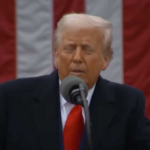German manufacturers and alcohol producers may find new opportunities in the UK following the announcement of sweeping new US tariffs, according to Blick Rothenberg, a leading audit, tax, and advisory firm. The tariffs, dubbed the “Liberation Day” tariffs by the White House, impose significant levies on imports from 60 countries. While the UK faces a 10% tariff on its exports to the US, imports from the European Union will be hit with a higher rate of 20%, reshaping global supply chains and trade dynamics.
Nils Schmidt-Soltau, Head of the German desk at Blick Rothenberg, noted that the lower tariff on UK imports could offer a “silver lining” for German businesses with manufacturing operations in the UK. “Given the 10% tariff on UK imports compared to the 20% on EU imports, German businesses with a UK manufacturing presence may find this to their advantage,” he said. This shift in trade terms may encourage more German businesses to strengthen their ties with the UK, especially in industries that stand to benefit from the tariff differences.
In particular, German alcohol producers could see growth in the UK market. Germany ranks as the EU’s third-largest wine exporter and the fourth-largest beer exporter, with the US being a key market. However, the new tariffs on beer and wine imports into the US could hinder this trade. Schmidt-Soltau pointed out that the UK, which is the second-largest wine importer globally after the US, could become a new focus for German producers. “Although German alcohol exports to the UK are currently modest, there is significant potential for growth, especially as Germany was the UK’s largest import partner in 2023,” he noted.
This potential growth may encourage German brewers and winemakers to expand their presence in the UK, either through direct exports or local partnerships. The UK’s trade relationship with the EU, combined with post-Brexit flexibility, could position it as an attractive destination for German alcohol exports.
However, German carmakers are unlikely to benefit from the UK’s lower tariff rate. Despite the UK’s more favorable tariff status, German automakers like Volkswagen-owned Bentley, BMW-owned Rolls-Royce, and Mini, which manufacture in the UK, will still be subject to the 25% tariff on automotive imports into the US. This higher tariff on cars will continue to affect the global automotive sector, limiting any potential advantages from the new tariff structure.
As the global trade landscape shifts, the UK’s ability to navigate its post-Brexit trade terms may provide opportunities not only for British exporters but also for European firms looking to maintain access to international markets, particularly the US. As the dynamics of global trade continue to evolve, companies will need to adapt quickly to new opportunities and challenges.









